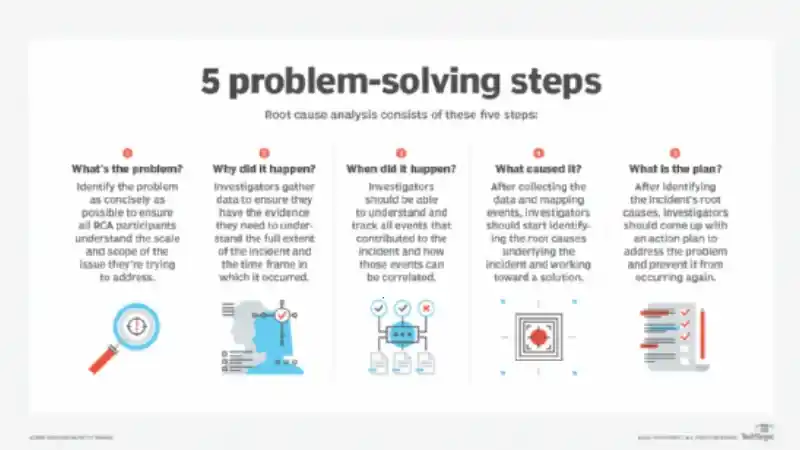Virtual Private Networks (VPNs) are designed to enhance online privacy and security. However, some users have reported an issue where Proton VPN thinks I am seeding when I am not. This can be frustrating, especially for those who do not use torrenting services or have already stopped seeding files.
If you are facing this problem, you are not alone. Many Proton VPN users have encountered situations where the service mistakenly flags their network traffic as torrent activity. In this article, we will explore why Proton VPN thinks I am seeding when I am not, the potential causes behind this issue, and the steps you can take to fix it.
Understanding the Issue: Why Proton VPN Thinks You Are Seeding
Before diving into the fixes, it is important to understand the problem in detail. Seeding refers to the process in which a user uploads a file via a peer-to-peer (P2P) network after downloading it. Some VPN services actively monitor and restrict torrenting activities to comply with regulations or prevent excessive bandwidth usage.
When Proton VPN thinks I am seeding when I am not, it means the service has detected outgoing P2P traffic from your connection even if you are not actively using torrent software. This could be due to several reasons, including residual connections, network misinterpretations, or VPN server misconfigurations.
Possible Causes of the Issue
There are multiple reasons why Proton VPN thinks I am seeding when I am not. One possible explanation is that residual torrent connections remain active even after closing a torrent client. Some connections may take time to terminate completely, leading the VPN to detect ongoing P2P activity.

Another potential reason could be ISP or network misinterpretation. Internet Service Providers sometimes analyze network traffic and might incorrectly classify certain activities as torrenting. If Proton VPN routes traffic through specific servers, it may contribute to this misclassification.
VPN server misconfiguration is another factor to consider. Some Proton VPN servers have configurations that inadvertently detect normal internet traffic as torrent activity. If connected to a P2P-friendly server, the VPN might mistakenly assume that seeding is still taking place.
Port forwarding settings may also play a role. If port forwarding is enabled, certain open ports might still be accessible to other peers. This can create the illusion of active seeding, even when no torrent activity is happening on your device.
Background applications running on your system can also trigger false positives. Certain apps, such as blockchain applications or gaming platforms that use peer-to-peer connections, might be mistaken for torrent traffic. This can happen even if no torrent client is installed on your device.
How to Fix the Issue
Several steps can help resolve this issue. The first thing to check is whether any torrent applications are still running. Even after closing them, some background processes may continue, keeping connections alive. Ensuring that no torrent-related software is active can help eliminate this possibility.
Disabling port forwarding in Proton VPN is another useful step. By turning off port forwarding, any open ports that might be accessible to P2P traffic will be closed, reducing the chance of being misidentified as seeding.
Switching to a different VPN server can also make a difference. Connecting to a non-P2P server may stop Proton VPN from flagging your traffic incorrectly. If one server continues to trigger the issue, testing another location could help.
Restarting your router and flushing the DNS cache can clear any lingering network issues. Restarting the modem and router will refresh the connection, while flushing the DNS cache will remove any outdated network records that might be contributing to the problem.
Checking for background applications that use P2P connections is another essential step. Certain software may be running without your knowledge and could be causing Proton VPN to detect seeding activity. Monitoring network activity and disabling unnecessary programs can help prevent false detections.
If none of the above steps work, reinstalling Proton VPN might resolve the issue. A fresh installation can eliminate any misconfigurations or settings that could be causing incorrect traffic identification.
If the problem persists after trying all these solutions, reaching out to Proton VPN’s support team is advisable. Providing details about the connection and troubleshooting steps taken can help them diagnose the issue more effectively.
Preventing Future False Detections
To prevent Proton VPN from mistakenly identifying network activity as seeding, it is best to avoid connecting to P2P-designated servers if torrenting is not being used. Some servers are specifically optimized for torrent traffic, and connecting to them may increase the likelihood of misinterpretation.
Regularly monitoring network activity ensures that no unknown applications are utilizing peer-to-peer connections. Keeping Proton VPN updated is also crucial, as newer versions often include bug fixes that resolve such detection issues.
Disabling automatic reconnections in Proton VPN can also help. If the VPN disconnects and reconnects frequently, it might cause temporary spikes in traffic that could be mistaken for seeding activity.

Experiencing an issue where Proton VPN thinks I am seeding when I am not can be frustrating, but multiple solutions can help resolve and prevent it. Identifying the cause of the problem and taking appropriate action, such as closing residual connections, adjusting VPN settings, and switching servers, can make a difference.
If the issue persists despite troubleshooting efforts, contacting Proton VPN’s support team is the best course of action. Keeping VPN settings optimized and monitoring network activity can also help avoid false-positive detections in the future.

